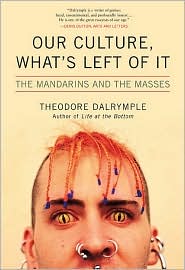
“Where does the political correctness end?”
That’s the question from Michael Laws in response to the shocking news that local MÄori are calling for “Rimutaka” to be changed to “Remutaka”. His dire predictions are coming to pass. The savage, foreign spelling of Whanganui has been coercively imposed by the forces of craven self-hating white PC liberality upon the good burghers of Wanganui — sorry, I mean Wonganewy — and now every MÄori place-name in the country is going to be similarly stripped of the light patina of civilisation bestowed upon it by the linguistic touch of the God-fearing right-thinking settler.
As local councillor John Tenquist — or should that be Tinquist? — says, it’s always been that way for more than his 76 years, so that’s how it should always be:
What is wrong with the way it is? Once again we are pandering to a minority. We have some European heritage in this country and, rightly or wrongly, it has been Rimutaka for over 150 years, so if it ain’t broken, don’t fix it. The locals on either side of the hill will never change the name from what they have always known.
Of course. Those old people knew what they were doing back then when they changed the name. Wouldn’t have done it without a reason. Back in those days, they knew that eating at the dining table was the final bulwark against the collapse of Western civilisation, betokened nowadays by so much more than the creeping advance of Hori-fied place names. We are losing our grip, little by little. We even have to sing the national anthem in MÄori — and the MÄori version first, even though they didn’t write it! Our country’s most-trusted citizen and most-decorated war hero is a MÄori. We’ve got a MÄori flag, a MÄori All Black team, and half our goals at the World Cup were scored by a MÄori! I fully expect that by the time of the 2014 World Cup we’ll be fielding a team called the All Browns. In the unlikely event that we can qualify, given the well-known lack of footballing skill possessed by those not of European extraction.
And would you look at that: Mayor Michael was right all along. Once again, spearheading this frontal assault on all that is right and proper are those bloody river MÄoris and their unpronounceable names:
The story behind the area’s name is that a Maori chief, Haunuiananaia, an ancestor of the Te Ati Hau a Paparangi people of the Whanganui region, left his home in southern Taranaki to pursue his errant wife Wairaka, who had run off with a slave.
During his journey, he sat down to rest on a mountain and think about his quest. He named the mountain Remutaka – which means to sit down.
The Mairist Republic of Whanganuistan draws ever closer. And we’re supposed to call the highest peak in the Wellington region after something some savage once sat his arse on?
It’s past time for New Zealand’s downtrodden, powerless, disenfranchised white majority to rise up, and let the clarion cry be heard: “Come and see the violence inherent in the system! Help, help, we’re being repressed!”
L

